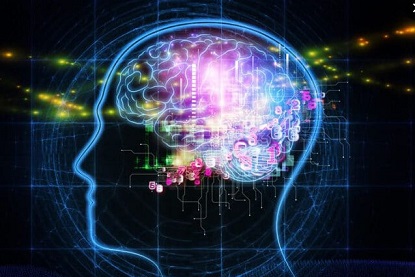Dementia Epidemic In India! 17.6 Percent Of Indians Aged Over 60 Have Dementia And Neurocognitive Disorders!
Nikhil Prasad Fact checked by:Thailand Medical News Team Feb 10, 2024 1 year, 9 months, 3 weeks, 3 days, 3 hours, 57 minutes ago
Medical News: India, long recognized for its youthful population, is experiencing a seismic demographic shift. The United Nations predicts that individuals aged 60 and above will constitute 20% of the population by 2050, heralding a new era of challenges related to aging and associated health concerns. Among these challenges, dementia emerges as a critical public health issue, underscored by a groundbreaking study that is covered in this
Medical News report, conducted by a consortium of prestigious institutions, including Johns Hopkins University, the University of Southern California, and the University of Surrey, among others.
 17.6 Percent Of Indians Aged Over 60 Have Dementia And Neurocognitive Disorders
The Alarming Prevalence of Neurocognitive Disorders in India
17.6 Percent Of Indians Aged Over 60 Have Dementia And Neurocognitive Disorders
The Alarming Prevalence of Neurocognitive Disorders in India
The study, known as the Harmonized Diagnostic Assessment of Dementia for the Longitudinal Aging Study in India (LASI-DAD), has revealed staggering statistics that demand immediate attention. Utilizing the DSM-5 criteria, a gold standard in clinical diagnostics, the research found that 17.6% of individuals aged 60 and above in India are grappling with mild neurocognitive disorders, while 7.2% are burdened with major neurocognitive disorders. Extrapolating these figures to the estimated 104 million Indians over 59 years old suggests that 24 million may be living with mild cognitive impairment, and an additional 9.9 million may be dealing with full-fledged dementia.
The Methodological Rigor of LASI-DAD
The LASI-DAD study, employing multistage area probability sampling, involved 4,096 participants, making it one of the most extensive examinations of dementia prevalence in India. To determine prevalence, researchers utilized a multifaceted approach, including neuropsychological testing and informant reports, aligning with DSM-5 criteria. Notably, the study achieved an impressive 89.5% agreement between DSM-5 classifications and clinician-adjudicated Clinical Dementia Ratings (CDR), highlighting the robustness of the methodology.
Comparisons with Previous Studies: Challenging Perceptions
Previous estimates of dementia prevalence in India primarily relied on the 10/66 algorithmic criteria, a method that has now been surpassed by the LASI-DAD study's utilization of DSM-5 criteria. This shift in approach has uncovered a higher prevalence than previously acknowledged, challenging existing perceptions and underlining the need for more accurate and comprehensive diagnostic criteria.
Demographic Gradients and Implications
The study identified distinct demographic gradients in dementia prevalence, shedding light on critical factors. Higher prevalence rates were observed among older age groups, individuals with lower education levels, illiterate individuals, and those residing in rural areas. These patterns align with the anticipated challenges posed by India's aging population and highlight the urgent need for targeted interventions, support systems, and public health strategies.
Global Com
parisons: India's Dementia Challenge
Comparing India's dementia prevalence with global benchmarks, the study suggests that the rate in India (9.5%) surpasses that of the United Kingdom (6.5%). This stark contrast underscores the magnitude of the issue and emphasizes the need for increased attention to aging-related health concerns in India. The sheer size of the estimates in the study explains why the UN is paying closer attention to the aging and dementia population in India.
Challenges in Diagnosis and Cognitive Testing
The study acknowledges the inherent challenges in assessing cognitive disorders in developing countries like India, where many individuals have lower formal education levels or are illiterate. Cognitive tests, often designed for literate populations, may not adequately capture the full complexity of cognitive changes in diverse populations. The study emphasizes the importance of adapting diagnostic approaches to suit the specific demographic characteristics of the population under study.
The Promise of Blood Tests in Dementia Diagnosis
Recognizing the limitations of cognitive tests, the study suggests that blood tests could revolutionize dementia diagnosis. While still in the realm of research studies, these blood tests aim to provide a more objective and specific assessment of dementia risk. Such tests could be particularly beneficial in developing countries, mitigating the impact of lower education levels on traditional cognitive assessments.
Implications for Public Health and Future Research
The prevalence of neurocognitive disorders in India, as revealed by the LASI-DAD study, has profound implications for public health, society, and families. With an aging population, the need for preventive measures, early interventions, and support systems becomes paramount. As the LASI-DAD study continues with its longitudinal data collection, future research should focus on capturing cognitive decline over time, refining diagnostic algorithms, and exploring emerging technologies, such as blood tests, for more accurate and accessible dementia assessments.
Addressing the Growing Tide of Dementia
The LASI-DAD study provides a comprehensive and eye-opening analysis of neurocognitive disorders in the aging population of India. The prevalence rates uncovered challenge existing perceptions, emphasizing the urgent need for targeted interventions and public health strategies. As India navigates the complexities of an aging demographic, addressing the rising tide of dementia becomes a crucial imperative for the well-being of individuals, families, and society at large.
Conclusion
In conclusion, the LASI-DAD study serves as a clarion call, urging policymakers, healthcare professionals, and society at large to recognize and address the silent crisis of dementia in India. The prevalence rates uncovered by the study underscore the pressing need for comprehensive public health strategies, increased awareness, and innovative approaches to support the aging population. As India grapples with the multifaceted challenges of an aging demographic, concerted efforts must be made to ensure the well-being and dignity of older adults affected by neurocognitive disorders. With continued research, proactive interventions, and a commitment to raising awareness, there is hope for a future where the impact of dementia can be mitigated, and the quality of life for the aging population in India can be substantially improved.
The study findings were published in the peer reviewed journal: PLOS One.
https://journals.plos.org/plosone/article?id=10.1371/journal.pone.0297220
For the latest
Medical News, keep on logging to Thailand Medical News.
